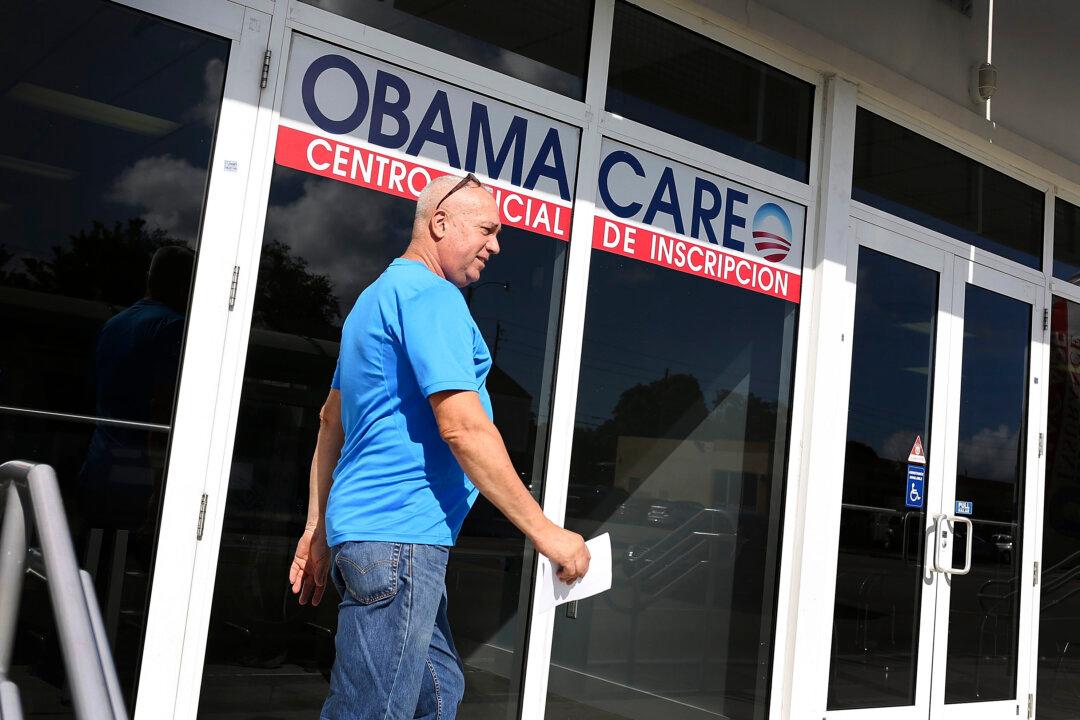The federal government pays the amount of the tax credit directly to the insurance company, and the consumer pays the discounted premium.
The marketplace enables more than 24 million people to obtain government-subsidized health coverage. The program cost taxpayers about $91 billion in 2023.
In practice, according to some experts, the system has been widely abused, as many ACA Marketplace customers underreport their income to obtain lower premiums, costing taxpayers billions each year.
House Republicans inserted provisions into the One Big Beautiful Bill Act to address these issues, as well as roll back some Biden-era changes that have driven up the cost of the program.
The bill would “make the ACA more efficient, less prone to fraud, waste, and abuse, and better ensure that subsidies are going to eligible individuals that need them most,” Jackson Hammond, a senior policy analyst at Paragon Health Institute, told The Epoch Times.
Opponents call the legislation a step backward.
Small, Significant Changes
First, the bill would require marketplace customers to reenroll every year, much as some employees are required to reconfirm their chosen coverage for an employer-sponsored health insurance plan. During the reenrollment process, customers would also have to reverify their income.Currently, enrollees in Marketplace plans are automatically reenrolled in the same coverage each year unless they change their choices or opt out, which can result in people being enrolled in both a marketplace plan and an employer-sponsored plan.
Another provision would shorten the open enrollment period, which was lengthened under President Joe Biden. The bill would return open enrollment to the original Nov. 1 to Dec. 15 window.
Also, during special enrollment periods, people who apply based solely on their income—not on a qualifying event such as a job loss—would not be covered until their income was verified.
Third, the bill would remove the limit on the amount that one might have to repay the government if they received a larger premium tax credit than they qualified for.
Currently, a person in that situation must repay the overage. But the repayment is limited, and many people still wind up with a larger tax credit than they were due.
Other provisions of the bill would exclude gender transition treatment from coverage, limit Marketplace tax credits to citizens and some lawful residents, and require enrollees to be current on their premium payments before reenrolling for another year.
The portions of the bill related to health care would reduce the federal deficit by at least $715 billion by 2034, according to the Congressional Budget Office (CBO).
Much of that is attributable to the portions of the bill dealing with the ACA Marketplace, according to Brian Blase, president of Paragon Health Institute. The reforms “will reduce projected Obamacare subsidies by $338 billion over the 2026–2033 period relative to the inflated Biden-era baseline,” Blase told The Epoch Times.
Potential Increase in Uninsured
The combined effect of the many changes could have a huge impact on the ACA Marketplace, according to Drew Altman, president of KFF, a health policy research center.“Add all [these small changes] up and it’s easy to see why many Marketplaces believe they are facing a one-third drop in enrollment,” Altman wrote on May 20.
Enrollment has doubled since the American Rescue Plan Act expanded the availability of premium tax credits. Those expanded credits expire at the end of 2025, which could leave some 4.2 million people without health coverage between 2025 and 2034, according to the CBO. Another 1.8 million could lose coverage during that period because of provisions of the bill related to the marketplace.
Those numbers may not tell the whole story, according to Hammond. “We do know that there are many individuals who don’t even know they are enrolled in an exchange plan or are dually enrolled in an exchange plan and Medicaid,” Hammond said, adding that some others are losing their marketplace coverage who would not have been eligible in the first place.
A drop in enrollment could cause premiums to rise for those who remain, according to a report from America’s Health Insurance Plans, a health insurance trade association. “If barriers are erected to enrollment, tax credits expire, and premiums soar, only the sickest enrollees will stay in the market,” the association stated in the report.
The One Big Beautiful Bill Act passed the House on May 22 and is now being considered by the Senate.







